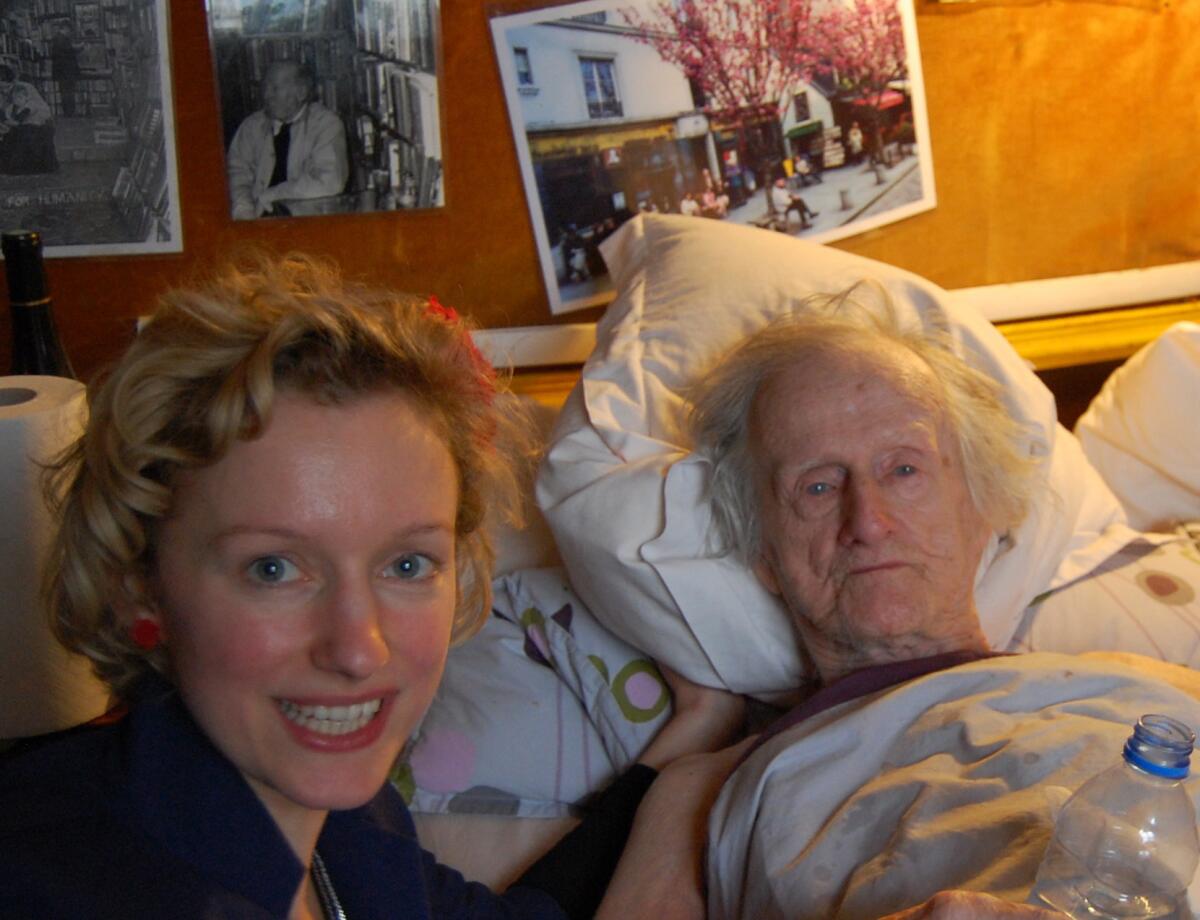The greatest bookstore in the world

In the November issue of Vanity Fair, Bruce Handy has a long piece about the history and future of Paris’ Shakespeare and Company bookstore, my call for greatest bookstore in the world. A warren of rooms and bookshelves that fill a 17th century building on the Left Bank -- within spitting distance of, in one direction, Notre Dame and, in the other, the Boulevard Saint-Germain -- it is a throwback in the best sense of the word.
“Writers who logged time at the current Shakespeare and Company,” Handy tells us, “sometimes even sleeping there … include Allen Ginsberg, Henry Miller, Richard Wright, Langston Hughes, Lawrence Durrell, Anais Nin, James Jones, William Styron, Ray Bradbury, Julio Cortazar, James Baldwin and Gregory Corso. Another early visitor, Lawrence Ferlinghetti, co-founded his City Lights bookstore, in San Francisco, as a sister institution two years after Shakespeare’s opened.”
The store was opened in 1951 by George Whitman, an American who went on to run it for 60 years. The name comes from Sylvia Beach’s legendary Paris bookshop of the 1920s and 1930s, where Hemingway, Fitzgerald and Joyce hung out. (Beach published the first edition of “Ulysses” under the store’s imprint in 1922.) She closed during the Occupation; Whitman first called his store the Mistral, changing the name to Shakespeare and Company in 1964.
Whatever the provenance, however, the ethos remained remarkably consistent over time. I haven’t been there for many years, but I can still recall the stomach-churning glee of it: that outer courtyard, with its shelves and tables, the front room packed with books, and then those narrow stairs and reading nooks, all sectioned off with names and designations of their own.
In the Vanity Fair piece, Handy lists a few of them — “OLD SMOKEY READING ROOM and BLUE OYSTER TEA ROOM” -- and reminds us of the slogans Whitman painted “above doorways and on steps.” (My favorite is: “BE NOT INHOSPITABLE TO STRANGERS LEST THEY BE ANGELS IN DISGUISE.”)
For decades, Whitman would allow writers to sleep there; in exchange, they had to read a book a day. Those who took him up on it include Robert Stone, who wrote part of his first novel “A Hall of Mirrors” in the store during the early 1960s. As he recalls, the building was “quite medieval. There was hardly anything you could call plumbing. If you wanted to bathe, which you did from time to time, the nearest available sanitary facilities were over at the public baths on the Ile de la Cite.”
Whitman died in 2011 at age 98, and Shakespeare and Company is now run by his daughter Sylvia. Like the inheritor of any tradition, she is in the process of modernizing while also trying to remain faithful to the institution’s roots. Among her innovations, Handy writes, are a website and digital ordering; she has also added a cafe and a reading series featuring writers such as Zadie Smith.
This could make for a cautionary tale, but it doesn’t seem to be one -- the changes, rather, appear organic, a kind of natural growth.
Whitman, for his part, saw the store as a work of art in its own right, his magnum opus, and regarded Sylvia as a key part of its legacy. On Jan. 1, 2004, Handy writes, the bookseller painted the following notice on the Shakespeare and Company’s shutters, passing the torch both metaphorically and literally.
“INSTEAD OF BEING A BONAFIDE BOOKSELLER,” the notice reads, “I AM MORE LIKE A FRUSTRATED NOVELIST. THIS STORE HAS ROOMS LIKE CHAPTERS IN A NOVEL AND THE FACT IS TOLSTOI AND DOSTOYEVSKY ARE MORE REAL TO ME THAN MY NEXT DOOR NEIGHBORS… . IN THE YEAR 1600, OUR WHOLE BUILDING WAS A MONASTERY CALLED ‘LA MAISON DU MUSTIER.’ IN MEDIEVAL TIMES EACH MONASTERY HAD A FRERE LAMPIER WHOSE DUTY WAS TO LIGHT THE LAMPS AT NIGHTFALL. I HAVE BEEN DOING THIS FOR FIFTY YEARS. NOW IT IS MY DAUGHTER’S TURN.”
Twitter: @davidulin
More to Read
Sign up for our Book Club newsletter
Get the latest news, events and more from the Los Angeles Times Book Club, and help us get L.A. reading and talking.
You may occasionally receive promotional content from the Los Angeles Times.







